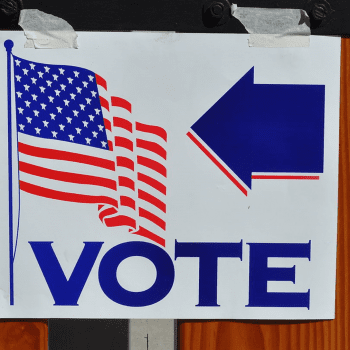Is there a German schism in the works?
That’s what fellow Patheos blogger Dwight Longenecker speculates, citing a National Catholic Register article, as German Cardinals seem prepared to go it alone if the current marriage-and-family synod doesn’t result in a rewrite of Catholic doctrine on marriage and the family to their liking:
Cardinal Marx, the archbishop of Munich and Freising, said as far as doctrine is concerned, the German episcopate remains in communion with the Church, but on individual issues of pastoral care, “the synod cannot prescribe in detail what we have to do in Germany.”
The German bishops want to publish their own pastoral letter on marriage and family after the synod, the article says.
“We are not just a subsidiary of Rome,” Cardinal Marx said. “Each episcopal conference is responsible for the pastoral care in their culture and has to proclaim the Gospel in its own unique way. We cannot wait until a synod states something, as we have to carry out marriage and family ministry here.”
Another Patheos blogger reports, Rebecca Hamilton, here at Patheos and more fully at the National Catholic Register, that the German Cardinals at the synod have managed to gain control over the process and are engaged in writing the synod documents in a backroom manner. But in one respect she misses a piece of the background. She writes,
This kind of moral action on the part of churches is stifled in Germany by the simple fact that the government pays the church. It collects a “church tax” from those who designate themselves church members and forwards this money to the church.
Thus we have the German bishops not only signing up for gay marriage and leading the charge to make a mockery of the sacrament of marriage in their own nation, but using their considerable wealth and influence to lead the entire Catholic Church off that same cliff by means of the Synod. The truth is that the German bishops are following the golden rule: He who has the gold rules. In their case, the one with the gold is the government that has made them rich, even while their parishes dwindle and die.
These same German bishops, who can find no fault with the destruction of marriage and the trashing of the very sacraments from which they derive their moral authority, have told their laity that if they don’t register as Catholic on the tax roles, it is a mortal sin. In other words, they are claiming it is a mortal sin not to enrich the bishops.
It’s no big surprise that the same German churches who folded up for Hitler — I can show you photos of German churchmen standing and giving the Nazi salute, of churches where the Nazi flag was draped over the altar — are now folding up for this nihilist post-Christian world. It’s money. Lots and lots of money, and it all comes from the government, not the people in the pews.
Hamilton connects this to the Nazi era: two instances of the Catholic Church in Germany allowing itself to be co-opted by the government. But that isn’t what’s going on now.
The German church is in decline. Serious decline. Church after church is being closed, or merged with its neighbor. They haven’t had a sexual abuse crisis, that I know of, but there was the matter of the “bishop of bling” a couple years ago — a bishop whose reckless overspending on a renovation of the bishop’s residence scandalized and disgusted those hardy souls who continued to pay the church tax, leading to yet a further uptick in the numbers of people cancelling their memberships. And, rather than responding in some pastoral fashion, the church leaders have doubled down on the Church Tax. Not only have they declared de-registration to be a mortal sin, which anyone can, individually, choose to reject, they have also prohibited non-church-tax payers from any sort of church participation. Per this article from 2014 (which I wrote about in an earlier blog post about the troubles arising from Catholicism being, in some fashion, a “state church”),
The decree specified that those who do not pay the church tax cannot receive the sacraments of confession, Communion, confirmation or anointing of the sick, except when in danger of death; cannot hold ecclesial office or perform functions within the Church; cannot be a godparent or sponsor; cannot be a member of diocesan or parish councils; and cannot be members of public associations of the Church.
Now, the church tax is not huge, but amounts to 3 – 4% of pay, depending on one’s pay (it varies in proportion to one’s income tax). Nonetheless, it is an all-or-nothing deal; there is no choice offered to parishoners in how much they feel comfortable paying. And the money doesn’t go to their local parish, which is instead allocated funds centrally, based on, I believe, registered Catholics in parishes, defined geographically. Fun fact: I needed to get special permission to have my son baptized at the family-friendly parish in the next town over, and my understanding is that, except for the few coins tossed in the collection basket on Sundays, it doesn’t really benefit a parish financially to have greater or lesser attendance on Sundays, let alone to “poach” from neighboring areas by, you know, actually ministering to their congregants. And, by the way, the parish we attended, St Georg, at the time we were there, had a “Familiengottestdienst” or family-oriented service, nearly every Sunday, but this was abandoned several years ago when they became part of such a merged parish.
Bottom line: the church leadership in Germany seems to have decided that it’s primary goal is to keep its coffers filled, and has decided that the best way to meet that objective is the seemingly-easier approach of simply changing doctrine to become more popular, rather than trying to tone down their greed and minister to their people. It’s not about being co-opted by the government, but trying to find the easiest means possible towards being more popular with its people.














